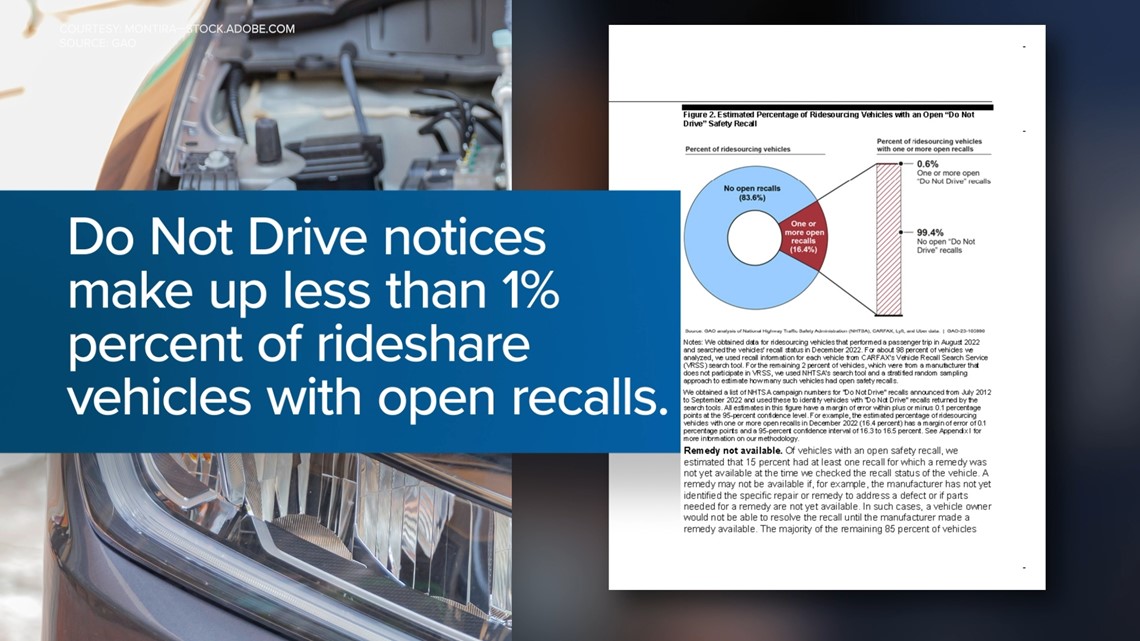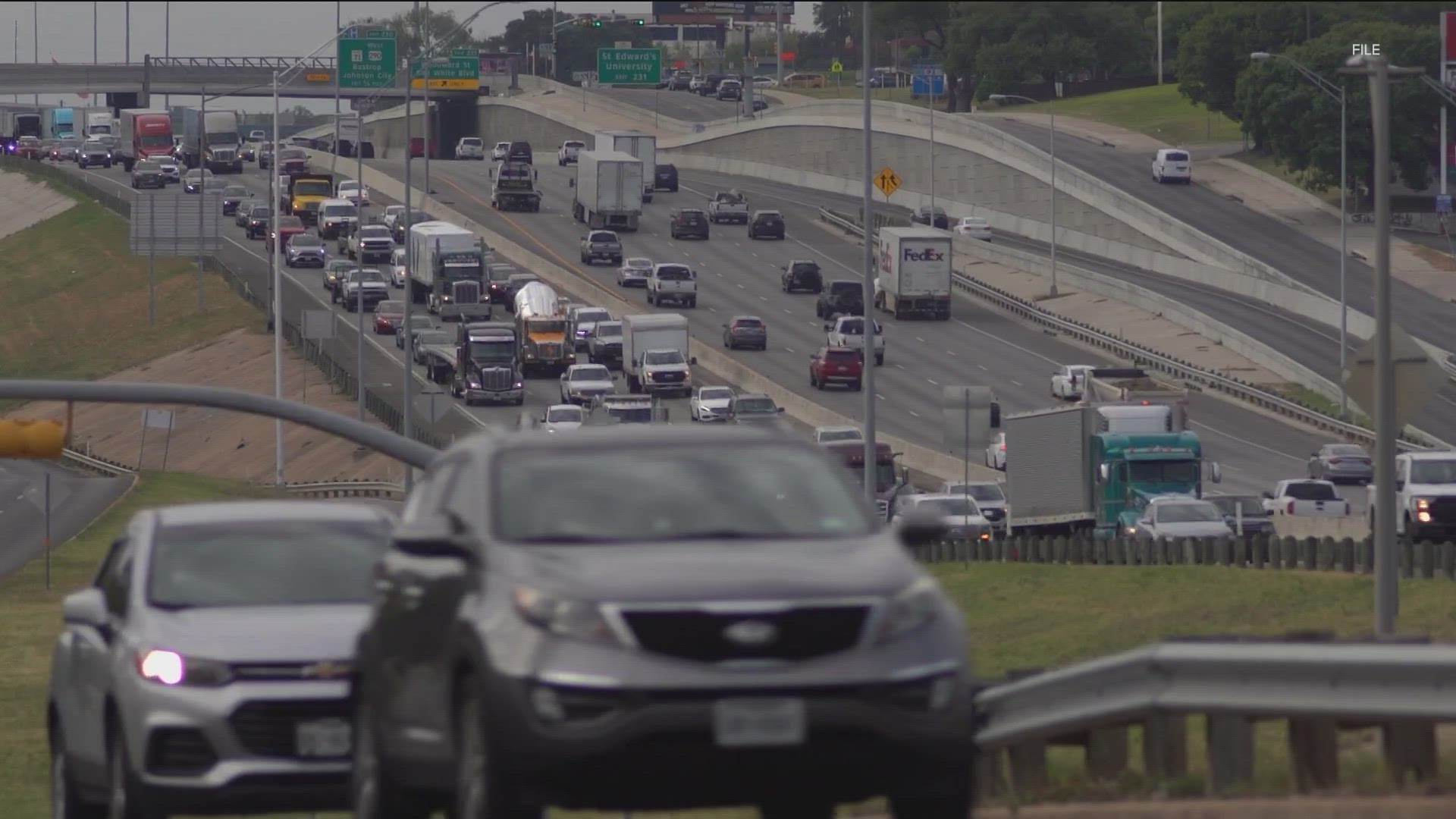AUSTIN, Texas — A May Government Accountability Office (GAO) report shows how many rideshare vehicles may have issues that need to be fixed.
Recalls are issued when either a vehicle manufacturer or the National Highway Traffic Safety Administration (NHTSA) finds a safety risk or issue that fails to meet safety standards.
Manufacturers are required to fix the problem once a recall is issued.
“This report was a report that we did in response to a piece of legislation, the Infrastructure Investment and Jobs Act, which required GAO to perform a study,” said Elizabeth (Biza) Repko, the GAO's director of physical infrastructure.
The report shows nearly 20% of Texas rideshare drivers have an open recall.
“Most of the drivers are using their personally owned vehicles. And just like any personally owned vehicle, a personally owned vehicle used for ridesharing could have an unrepaired or open safety recall, and that could expose the passenger unknowingly to a safety risk,” Repko said.
Repko and her team spent months studying the issue. Some of their resources included documents from auto industry trade groups, confidential data from ridesharing companies, information from the NHTSA and CARFAX records.
“The federal government has, from time to time, put rules around recalls and cars. So, for example, it's long been held that a new car dealer can't sell a car with an unfixed recall,” said Patrick Olsen, CARFAX's editor-in-chief.
“In 2016, they extended that to rental car companies. They can't rent you a car that has an unfixed recall. But that's as far as they've gone," Olsen said. "So, cab companies, rideshare, Uber, Lyft, there are no rules nationally about whether any of those cars should be used with an unfixed recall. And for consumers, they really need to educate themselves about what car they're getting into."
CARFAX tracks vehicle recalls, wrecks and maintenance records.
“There's still a lot of unfixed cars out there,” Olsen said.
The federal government does not require people to repair an open recall. Texas and Austin do not have laws prohibiting rideshare drivers from driving with an open recall.
Not all recalls carry the same weight.
The most urgent recalls are marked “Do Not Drive” or “Park Outside.” Those are for issues such as the ones with defective Takata Airbags.
Biza’s team found Do Not Drive notices make up less than 1% of rideshare vehicles with open recalls.


Some recalls may seem minor, such as NHTSA Campaign Number: 22V310000. It alerts certain Toyota customers that a sticker may fade.
“The affected vehicles contain a required load carrying capacity modification label that may not be permanent and can become illegible as the text has the potential to transfer off the label. As a result, the vehicles do not meet a requirement of FMVSS No. 110. A vehicle that is loaded beyond its load carrying capacity may have an increased risk of a crash,” the recall notice shows.
The KVUE Defenders emailed Uber and Lyft requesting statements on their safety policies.
An Uber spokesperson sent the following:
“As part of our commitment to safety, we regularly inform drivers about vehicle recalls that may impact them, how to check if their vehicle has an open recall, and any actions they should take. Vehicles that we know have an open recall are removed from the Uber platform until the recall is remedied, including those with a “Do Not Drive” recall. Our work on safety is never done and we will continue investing in product innovations, partnering with leading road safety organizations, and collaborating with government to make our roads safer for everyone.”
And a Lyft spokesperson sent this:
“Safety is a top priority for Lyft. We do not allow drivers to operate “do-not-drive” vehicles on the platform. Lyft’s Terms of Service explicitly require that drivers remedy any open recalls on their vehicles per manufacturers’ instructions, and we regularly send communications to drivers explaining how to check for recalls.”
Both businesses independently check to make sure the vehicle is fixed before allowing it back on the platform.
Here’s how to check your next ride:
You can run the license plate through CARFAX’s recall lookup
You can run the vehicle identification number through the NHTSA’s online recall database

